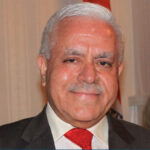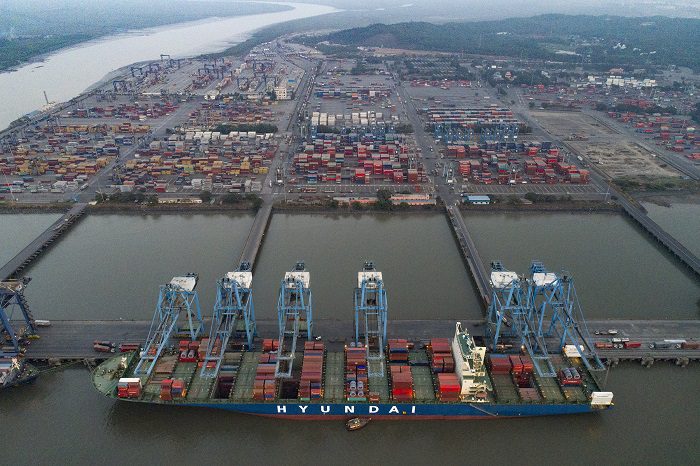Introduction
The 4th meeting of the India-Central Asia Dialogue was held in New Delhi on 6th June, 2025. The Meeting was chaired by India’s External Affairs Minister (EAM) Dr. S Jaishankar and attended by the foreign ministers of the five Central Asian nations. The 3rd Meeting of the Dialogue was held way back in New Delhi in December, 2021. Much water has flown down the Ganges as well as the Amu and Syr Darya since then. The Russia-Ukraine conflict which started in February, 2022 and is still continuing has shaken up the political, economic and security architecture of the region. Just before the 3rd Meeting of the Dialogue, the Taliban had taken over power in Kabul on 15th August, 2021 by dislodging the US and NATO supported regimes which had ruled over the country since 2001. In addition, India, Central Asian countries and the whole world were still struggling to extricate themselves from the ravages of the Covid-19 pandemic which had been stalking the globe since early 2020.
Background
India has enjoyed historical, cultural and civilizational links with Central Asia for several millennia. Brisk trade of goods, ideas and thoughts took place from India to Central Asia and beyond over the Silk Road from 3rd century BC to 15th century AD. Buddhism travelled to Afghanistan, Central Asia and western China from India over this route. India and the Central Asian Republics (CARs) viz. Kazakhstan, Kyrgyzstan, Tajikistan, Turkmenistan and Uzbekistan shared vibrant economic, people-to-people and cultural ties till recent times when the latter were a part of the Soviet Union.
India has not been able to take full advantage of its close ancient linkages with this region after their independence from the erstwhile Soviet Union in 1991 because it does not share a de-facto land boundary with any of these countries (although de-jure it shares a border with Tajikistan through the Pakistan-Occupied Kashmir). To overcome this obstacle, several initiatives which have been in the pipeline for many years have now been fast-tracked. Two of the most significant are the International North-South Transport Corridor (INSTC) and the Chabahar port.
Evolution of Relations
In current times, Central Asian Republics constitute the extended neighbourhood of India. Peace and security in Central Asia is critical to peace and stability in India. This is intimately connected with peace and security in Afghanistan particularly after the takeover of power in Kabul by the Taliban in August, 2021. Three Central Asian Republics — Tajikistan, Uzbekistan and Turkmenistan — share borders with Afghanistan.
In addition to the security considerations, the region is richly endowed with natural and mineral resources like oil, gas (Turkmenistan contains the world’s fourth largest reserves of natural gas), uranium (Kazakhstan is the world’s largest producer of uranium ore and has the world’s second largest reserve of this mineral), lead, iron ore, coal, rare earths, water, etc. The region can contribute to India’s energy security through fossil fuels and hydro-power and meet its need of many critical minerals and metals. The area is ideally situated for providing seamless connectivity between Europe and India. It encompasses the “heartland” of Halford Mackinder’s “Heartland Theory” propounded in his article “The Geographical Pivot of History” in 1904. Moreover, the region harbours great potential for promoting trade and investment, tourism, people-to-people connect, cultural, business and academic exchanges between India and these countries.
India and Central Asia started on a strong and robust note when these countries attained freedom from the Soviet Union in 1991. The then Indian Prime Minister PV Narasimha Rao sensed the strategic significance of the region and visited Kazakhstan and Uzbekistan in 1993, and Turkmenistan and Kyrgyzstan in 1995. The next twenty years however witnessed a relative neglect of the region by the Indian leadership owing to its preoccupation with domestic affairs, absence of a strong, single party government in New Delhi and its focus on expanding ties with major, strategic powers.
The 20 years from 1995 to 2015 witnessed only four prime ministerial visits from India to the region — in 2002 by PM Vajpayee to Kazakhstan for the CICA (Conference on Interaction and Confidence Building Measures in Asia) Summit followed by a half day bilateral visit, and in 2003 to Tajikistan; in 2006 by PM Manmohan Singh to Uzbekistan, and in 2011 to Kazakhstan for an overnight visit on his way back from Sanya, Hainan after the BRICS Summit.
Relations expand in Modi era
This negligence was corrected after PM Narendra Modi assumed power in May 2014, becoming the first Prime Minister after 30 years with a full majority in the lower house of Parliament (Lok Sabha). In just a little more than a year after becoming PM, he travelled to all five Central Asian countries in July 2015, the first Indian Prime Minister to do so, sending out a clear message about India’s intent in expanding its ties with these countries.
The last 10 years of PM Modi’s rule have witnessed a significant upswing in bilateral partnership and engagement with these countries. The rapidly changing dynamics of Central Asia’s regional and global political, strategic and economic architecture provide a bright opportunity for India to diversify and deepen its partnership with these countries.
Prime Minister Modi organised a Central Asia + India Summit in virtual format on 27 January, 2022. The Summit would have been held in person in New Delhi in the context of India’s Republic Day celebrations except that it was changed to a virtual Summit because of the preoccupation of the Kazakh President with the unprecedented violent protests and clashes in his country. The Leaders discussed the next steps in taking India-Central Asia relations to new heights. In a historic decision, the Leaders agreed to institutionalise the Summit mechanism by deciding to hold it every two years.
On connectivity, the leaders agreed to utilise the services of the Shahid Beheshti Terminal at the Chabahar Port for facilitating trade between the landlocked Central Asian countries and India. The leaders discussed far-reaching proposals to further cooperation in areas of trade and connectivity, development cooperation, defence and security and, in particular, in cultural and people to people contacts.
On the evolving situation in Afghanistan, the leaders reiterated their strong support for a peaceful, secure and stable Afghanistan with a truly representative and inclusive government. PM Modi conveyed India’s continued commitment to provide humanitarian assistance to the Afghan people. A comprehensive Joint Declaration was adopted by the leaders that enumerated their common vision for an enduring and comprehensive India-Central Asia partnership.
In the context of SCO Summits, PM Modi visited Tashkent, Uzbekistan, in 2016; Astana, Kazakhstan, in 2017; Bishkek, Kyrgyzstan, in 2019, and Samarkand, Uzbekistan, in 2022. The PM interacted inter alia with the SCO Central Asian leaders on the side-lines of other SCO Summits in Ufa, Russia in 2015; in Qingdao, China in 2018, etc.
All Central Asian nations participated in the two Voice of Global South Summits organised virtually by India during its Presidency of the G20 in January and November 2023.
All the above interactions and discussions helped to significantly enhance understanding and cooperation between India and Central Asia.
In pursuance of the decision at the India + Central Asia Summit in January 2022, the first India-Central Asia Meeting of National Security Advisers (NSAs)/Secretaries of Security Councils was held on December 6, 2022 in New Delhi. The participants reiterated their strong support for a peaceful, stable and secure Afghanistan, emphasising respect for its sovereignty, unity and territorial integrity and urging non-interference in its internal affairs.
The Second India-Central Asia NSAs meeting took place in October 2023 and discussed measures for enhancing cooperation in cyber security, digital infrastructure, rare earths, and people-to-people contacts. India proposed the establishment of an India-Central Asia Rare Earths Forum to attract investment from the private sector. India also offered to provide technology related to digital payments free of cost to facilitate the setting up of sovereign digital real-time payment systems in line with the needs of these countries.
The C5+1 India-Central Asia Dialogue
Prior to the 2022 Summit, India had launched a C5+1 Dialogue at Foreign Minsters’ level between India and Central Asian countries in Samarkand, Uzbekistan in January, 2019. This was designed to bring dynamism and energy to the languishing relationship. On account of the pandemic, the second Dialogue was held virtually in October, 2020. The third in the series was held in New Delhi in December 2021. This Dialogue, the first in-person meet after more than two years, provided a valuable opportunity to the foreign ministers to take stock of progress in their relations and identify new areas of cooperation. The ministers decided to step up efforts to achieve the full potential for trade between India and Central Asia and make optimum utilisation of the International North-South Transport Corridor (INSTC).
The Fourth India-Central Asia Dialogue
The 4th Dialogue on 6th June was preceded by an India-Central Asia Business Council and bilateral interactions of all Central Asian Foreign ministers with EAM on 5th June. In the discussions at the Business Council, special attention was paid to expanding cooperation in the sectors of digitalization, information technology, artificial intelligence and strengthening cultural and humanitarian ties. Ministers identified key areas of trade and economic cooperation, noted the need to develop transport corridors, including the Chabahar port and the North-South corridor, as well as made proposals to establish joint logistics centers and simplify transit procedures.
At the Dialogue, the Ministers “unequivocally condemned the terrorist attack in Pahalgam. They reaffirmed their firm commitment to fight against terrorism in all its forms and manifestations and reiterated that providing safe haven, using terrorist proxies for cross-border terrorism, terror financing, arms and drugs trafficking, dissemination of a radical ideology and abuse of cyber space to spread disinformation and incite violence, goes against the basic principles of humanity and international relations. They stressed that perpetrators, organizers, financiers and sponsors of terrorist acts must be held accountable and brought to justice. In this context, they called for early adoption of the UN Comprehensive Convention on International Terrorism. They stressed the need to strengthen UN-led global counter-terrorism cooperation and fully implement the relevant UNSC resolutions, Global Counter-Terrorism Strategy and FATF standards.”
To further enhance South-South engagement, the “Ministers agreed to work closely with India’s Global South Centre of Excellence “DAKSHIN” (Development and Knowledge Sharing Initiative) to learn from each other’s development experiences.” It will be desirable for the “Dakshin” leadership to take up this issue pro-actively so that some concrete results become available in time for the next India-Central Asia Summit which is likely to be held later this year.
The Ministers acknowledged that the current level of trade and investment between India and Central Asian countries was far below potential and “stressed the importance of making concerted efforts…..especially in sectors like pharmaceuticals, information technology, agriculture, energy, textiles, gems and jewellery etc.” They emphasised the importance of greater financial connectivity “including through digital payment systems, enhanced interbank relations, and trade in national currencies to encourage greater trade, investment, tourism and people-to-people exchanges. Recognising the important role of financial and banking linkages,” they expressed interest to “establish a Joint Working Group to explore ways to further deepen banking and financial connectivity between India and Central Asian partners.”
The Ministers stressed the increased usage of the International North-South Transport Corridor (INSTC) to enhance connectivity between India and the Central Asian countries. “They stressed that connectivity initiatives should be based on the principles of transparency, broad participation, local priorities, financial sustainability, respect for sovereignty and territorial integrity of all countries.” India reiterated its support for the membership of Turkmenistan and Uzbekistan in INSTC. The Ministers welcomed the First meeting of the India-Central Asia Joint Working Group on Chabahar Port held in Mumbai in April 2023. The Sides agreed to continue engagement for further developing the transit and transport potential of their countries, through simplification and streamlining of procedures, including greater use of TIR Carnet between India and Central Asia. Development of the INSTC and Chabahar are however likely to countenance stormy winds in the foreseeable future because of the adversarial and hostile postures and sanctions by the US against Iran.
The Ministers identified several areas including Science and Technology, Space, public health, food security, energy security and Innovation, research institutes, innovation centres and technological enterprises to strengthen mutual cooperation. The Central Asian countries noted the importance of India Stack in accelerating digital transformation and providing public service delivery at scale. India agreed to provide assistance in developing Digital Public Infrastructure (DPI) to Central Asian countries. The Ministers agreed to establish India-Central Asia Digital Partnership Forum and welcomed Uzbekistan’s offer to host the inaugural meeting.
The Ministers expressed their desire to deepen cooperation in the health-care sector, including medical tourism. Following India’s “One Earth, One Health” vision, they agreed to work together to enhance healthcare infrastructure and medical service delivery, and promote traditional medicine in Central Asian countries. India also offered technical support for designing Universal Health Coverage (UHC) models in Central Asia.
Ministers expressed interest in joint exploration of rare earth and critical minerals. Recognising the success of the first India-Central Asia Rare Earth Forum held in September 2024 in New Delhi, they suggested that the second India-Central Asia Rare Earth Forum meeting be held soon.
In addition to pronouncing support for promoting the age-old cultural and civilizational links between India and the Central Asian countries, as well as importance of holding regular consultations among the National Security Councils of India and the Central Asian countries to counter terrorism and other emerging challenges in the region, the Central Asian Ministers reiterated support of their countries for permanent membership of India in an expanded and reformed UN Security Council.
The 4th India-Central Asia Dialogue and the comprehensive and substantive Declaration issued at its conclusion reflects the common will of the Central Asian countries and India to strengthen multifaceted cooperation and joint efforts for stability and sustainable development of the region.
The Way Forward
Organising the 4th India-Central Asia Dialogue is a welcome development and a significant shot in the arm to taking the partnership forward. It is understood that India had been keen for quite some time to arrange this Meeting in New Delhi but scheduling challenges came in the way. Whatever was lost in the delay in hosting the 4th meeting after a gap of close to four years of the 3rd Meeting, was admirably made up by the wide-ranging and in-depth deliberations as well as the ambitious decisions as encapsulated in the Final Document. The challenge will now be to implement the decisions taken on a pro-active basis.
The holding of the first India-Central Asia Summit in January 2022, albeit virtually, was a huge landmark in the post-1991 evolution of relations between India and Central Asia. Progress on implementing the decisions taken on that occasion has been less than impressive. Even after a gap of three and a half years, very few decisions have made much significant progress and most of them are still languishing without any indication of when they might be taken up seriously for execution.
In the Readout issued by MEA on the call by the Central Asian Ministers on PM Modi, it is mentioned that “Prime Minister extended invitation to the leaders of all Central Asian countries for the Second India-Central Asia Summit to be held in India.” In the Joint Declaration it is stated that the Summit will take place in New Delhi at a mutually convenient date in 2025. It will hence be imperative to ensure that positive action is taken on most, if not all, of the Agenda Points in the Declaration issued at the Conclusion of the first Summit in January, 2022.
It needs to be noted that China had organised its first Summit with Central Asian countries, also in a virtual format, on 25th January, 2022, just two days before India. Since then it has already held two successful in-person Summits with the Central Asian nations, the first in Xian on 18 May, 2023 and the second in Astana on 16-18 June, 2025. While comparisons between China and India are not helpful as China enjoys a huge advantage over India on account of the common physical borders it shares with three of the five Central Asian countries, there is no gainsaying the fact that India has a lot of catching up to do. Over the last three and a half years since Central Asia started looking outside to diversify its Partners in the wake of the invasion of Ukraine by Russia, and engaging more countries in addition to China and Russia, many countries/regions including Turkiye, Iran, EU, GCC, the US etc. have stolen a march over it, while China and Russia have further strengthened their bilateral and multilateral positions in the region.
The positive factor for India in expanding its partnership with the Region is that all countries want stronger, multifaceted relations including in economic, political, strategic, security, education health, and cultural etc. sectors with India.
Decisions taken during the 4th India-Central Asia Dialogue can serve as a fresh template to energise the partnership so that it is taken to fresh heights during the Second India-Central Asia Summit to be held later this year.
In the rapidly transforming global political, security and economic architecture, a bright opportunity beckons India to expand and deepen its partnership with Central Asia. The 4thIndia-Central Asia Dialogue has established a strong and stable platform for the take-off of the bilateral ties in the coming months.
The previous issues of EU-Central Asia Relations: A Rapidly Expanding Partnership (Central Asia Digest) are available here: LINK
























